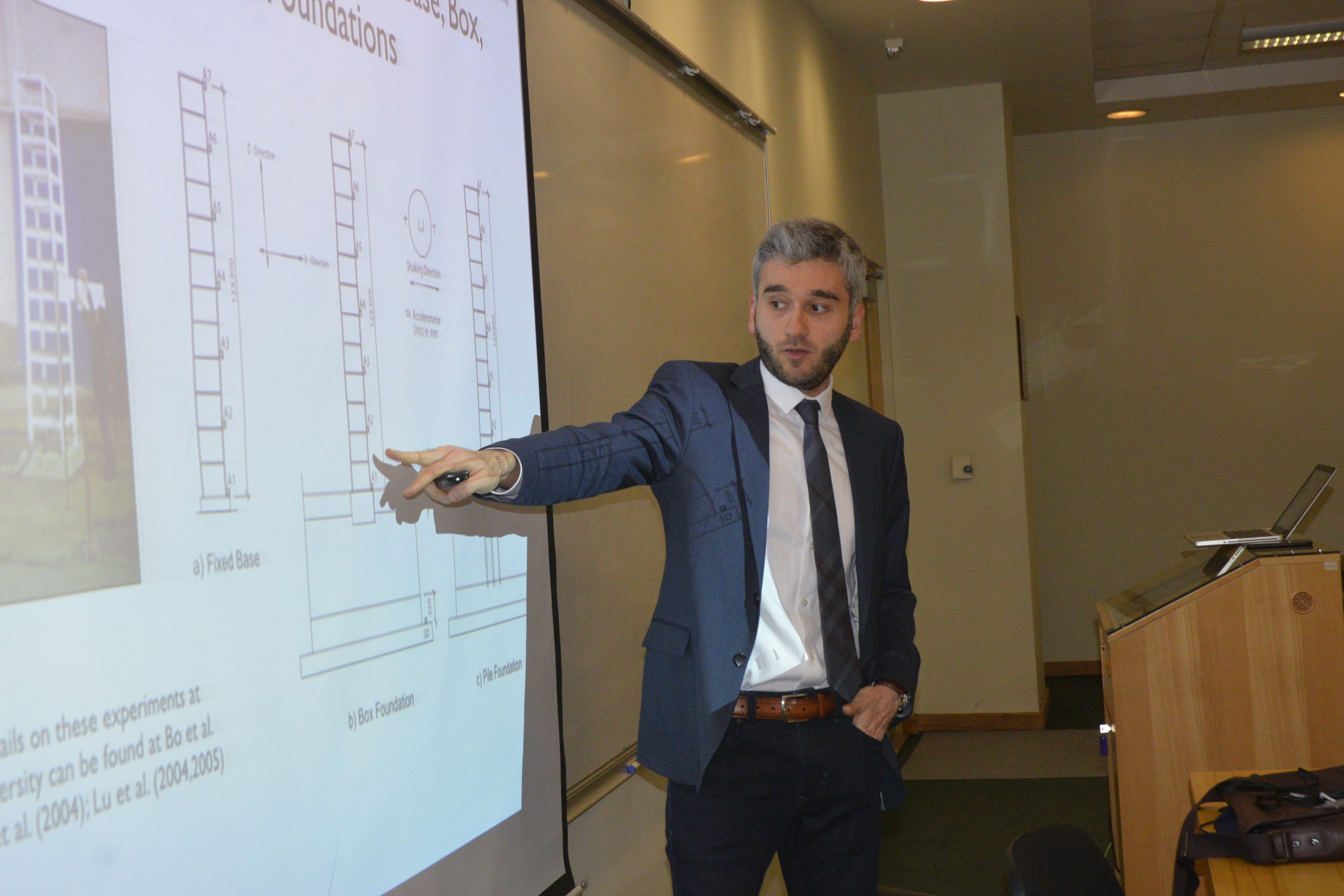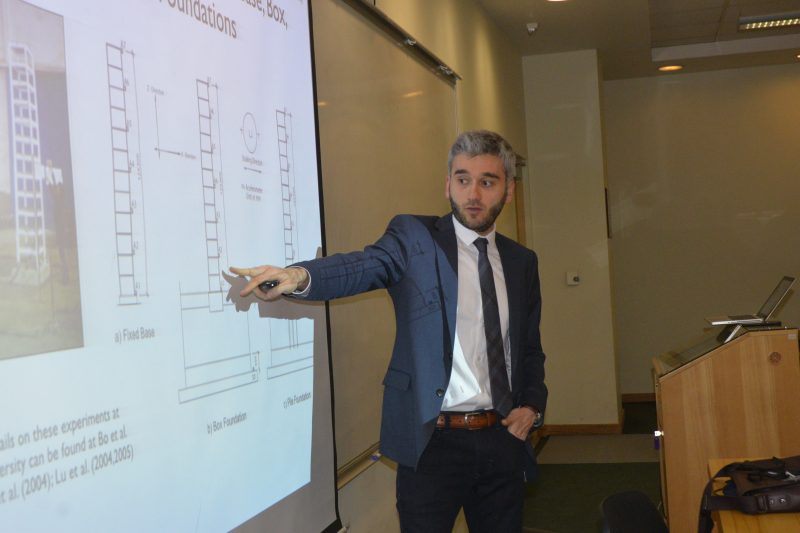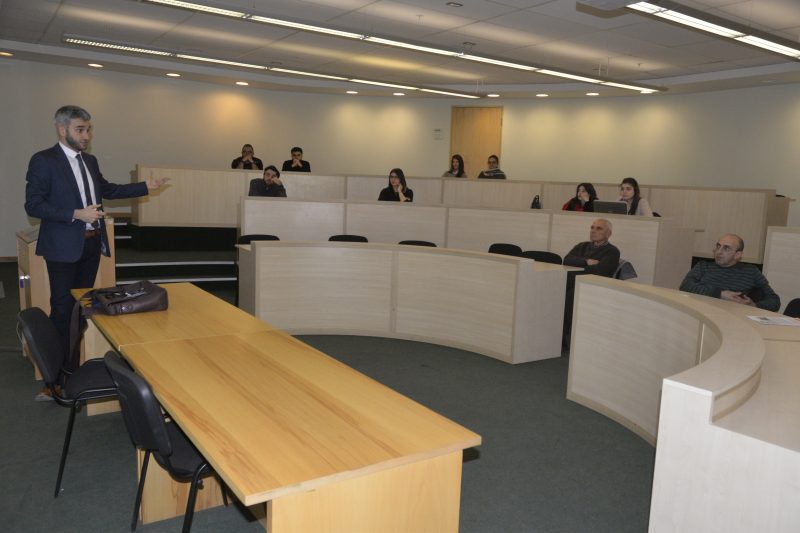
Public Lecture: Data-driven Mathematical Modeling
2 min readYEREVAN, Armenia – On November 22, the American University of Armenia (AUA) College of Sciences & Engineering (CSE) organized and hosted an event dedicated to recent advancements in computational capabilities and sensing technologies. Over the years, sensing technologies have advanced to provide an excellent opportunity to develop, test, and validate data-driven mathematical models for system identification, condition assessment, and health monitoring of structural systems that may be vibrating in linear or nonlinear ranges.
Throughout the event, the speaker, Armen Derkevorkian, presented a study of various large-scale, complex, experimental systems, as well as full-scale real-life multi-input-multi-output (MIMO) structures that are used to develop robust mathematical frameworks for response prediction, change detection, nonlinear damping estimation, in addition to displacement-field and operating-load estimation. The speaker mainly focused on discussing the Yokohama Bay Bridge System which was subjected to the 2011 Great East Japan Earthquake. According to the speaker, large-scale experimental soil-foundation-superstructure interaction systems subjected to various earthquake excitations with systematically increasing levels of intensity.The vibration signatures from these systems are used to assess the viability of existing parametric and nonparametric identification approaches and to propose new hybrid data-driven computational modeling methods that can accurately capture the correct physics of the underlying complex systems.
This presentation was a combination of analytical, computational, and experimental studies that capitalizes the availability of large datasets to develop tools that can interpret them and to establish robust frameworks that can extract physically meaningful information for informed decision-making.
Armen Derkevorkian is a member of technical staff and a Principal Investigator at the Jet Propulsion Lab at the California Institute of Technology (Caltech). Dr. Derkevorkian has a multidisciplinary educational background including two Masters Degrees in Electrical Engineering and Structural Engineering, a Graduate Certificate in Violin Performance, and a PhD in Civil Engineering; all from the University of Southern California (USC), where he was a Viterbi Doctoral Fellow. He is a recent recipient of the JPL Voyager Award for outstanding technical achievement. Derkevorkian’s research interests include data interpretation, data-driven modeling using machine learning, structural health monitoring, and condition assessment.
Founded in 1991, the American University of Armenia (AUA) is a private, independent university located in Yerevan, Armenia and affiliated with the University of California. AUA provides a global education in Armenia and the region, offering high-quality, graduate and undergraduate studies, encouraging civic engagement, and promoting public service and democratic values.


